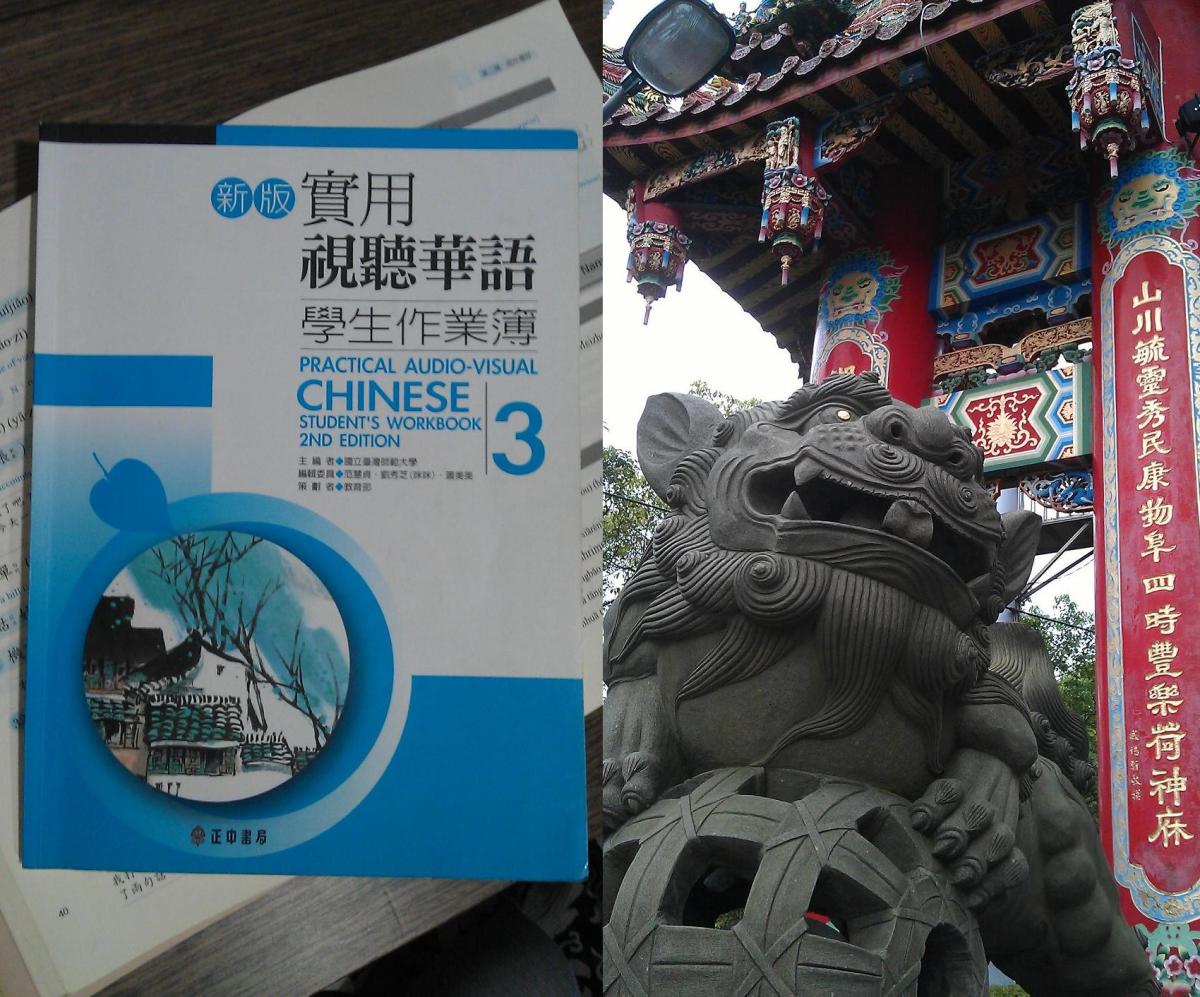How to Learn Mandarin Chinese on Your Own
You Can Teach Yourself
Want to learn Chinese for a trip or business? Or maybe you want to speak to relatives or friends. Even though this language spoken by over 1 billion people, very few high schools have classes, and the langauge isn't available in all colleges either. However, you can learn on your own, and, in fact, might even learn more than taking a class.
Why? When you teach yourself, you can make sure you really learn one level before you move on to the next. You can spend as long as you want to on a vocabulary list. Rather than just trying to pass a test, you can make your goal be learning the language.
Teach Yourself Learning Programs
Mandarin Language Learning Method
| Advantages
| Disadvantage
|
|---|---|---|
Pimsleur
| can repeat as much as you want, learn slowly, hear speaker clearly, do at own pace, "quiz" method helps you learn
| slow vocabulary build up, does cost about $300 per set of 30 lessons although you can get discounts and re-sell tapes, lessons get dull to listen to repeatedly
|
Chinesepod
| fun to listen to Ken and Jenny, explains background of phrases and teaches conversation in context, can listen to repeatedly, free to listen, can go from novice, to beginner, to intermediate and advanced
| lots of English in early lessons means you don't learn as much, jump between levels is tough sometimes, learning seems somewhat disconnected and vocabulary is not built up, no quizzing to help you see what you know
|
Mandarin Learning with Serge
| Serge does have longer conversations and vocabulary lists you can buy which do teach Mandarin in a more systematic way based on themes like restaurant, banking, relatives etc. Longer lessons and conversations than Chinesepod. Free to listen to podcasts.
| Lessons can be difficult for new language learner. Serge is Russian and so sometimes his English is off. Lessons are not as systematic as Pimsleur. Vocabulary is not repeated and built up. Vocabulary lists for each lesson are long.
|
Youtube Videos
| Free and offer both listening and viewing of people speaking. Variety of lessons and types of lessons.
| Some Youtube videos are just sample lessons and you have to pay to subscribe to whole program. Some lessons are not systematic or don't go beyond basic vocabulary. Other lessons may not be well structured. Need to search for good videos.
|
Chinese Language Class
| Systematic instruction with teacher who will guide your learning. You will be held accountable for learning. You will have other people to learn with. You will be tested on what you know. Teacher will help your progress.
| Tendency to focus on tests rather than what you really know how to speak. Often language classes focus more on reading and writing rather than speaking. Not enough chances to listen to native speaker.
|
Online Chinese for High School Credit (Powerspeak or Language 360)
| Can get high school credit for Chinese learning. Uses online and face to face instruction. Usually other students in class. Systematic language learning.
| Test driven. Does require dedication to study and do work. May not really master the speaking portion. A good start but not guarantee of learning to speak unless you do a lot of speaking outside of class.
|
Me in Beijing!

I Thought I Couldn't Learn
Or rather, that I couldn't really learn to speak. It wasn't that I hadn't tried. In fact, I'd studied German and Spanish and could read in both languages but couldn't ever speak to someone when I got the chance.
Everyone says that you need an immersion experience in order to really become fluent, but that didn't work for me. When we moved to Texas, we joined a Spanish church. Although most of the younger people did speak English, the sermons were in Spanish and many of the older people only spoke Spanish. My husband enthusiastically talked with everyone and enjoyed practicing his language skills, but in spite of having studied Spanish in college, I found I could not ever remember what I’d learned beyond the occasional “Hola” and “Adios!”
Embarrassingly, in the three years we belonged to the church, I never once had a conversation with anyone in Spanish! Sometimes, I'd try to practice starting a conversation on my own at home, but when it came to talking to someone in person, I'd always get embarrassed and start speaking English instead. Afterwards, I’d feel so frustrated that I never could remember what to say when I wanted to speak.
Why Try?
You can imagine what I thought when my husband said we should start learning Mandarin! Hadn't I learned my lesson? However, we do have two daughters adopted from China and we really did want them to learn some of their native language. Moreover, we had plans for taking not only our family but also some of the college students we work with to China on an extended trip, maybe more than once. Surely that was enough of a motivation? I wasn't so sure.
Reasons to Learn
Click thumbnail to view full-size






Listening to Pimsleur
My husband did some searching on the internet and talking to other professors he knew who had learned the language. One of them (who was fluent in several languages) told us that after he had studied Chinese through taking some college courses, he went over on business to Beijing and found no one could understand him. Of course, this story did not drive up my confidence. However, this professor told us that the problem was that he had learned visually and not by listening, so he had never really mastered the tones. He started learning over again using the Pimsleur method of learning by listening and repeating what he heard and found that it worked. Soon he returned to China and this time, they understood him.
Sample Pimsleur lesson one
Pimsleur Review
So we decided to try the Pimsleur method. Although the tapes can be expensive, my husband found that you can order them used and then re-sell them afterwards, so the cost is under $50 for the first thirty lessons. My husband plunged through Pimsleur 1 and 2 and then started on course 3. Skeptical, it took me a while to be even willing to try the first 30-minute lesson. When I did start listening to the Pimsleur tapes, I was initially frustrated because I couldn't “hear” the sounds of the words and repeat them correctly. Then I worried that I wasn't going through the tapes quickly like my husband. However, I just decided to not worry about how fast I was learning and just take as long as I needed to remember the lessons.
It was reassuring to know that the tapes said I only had to know about 80% of the lesson in order to move on because the vocabulary would be repeated later. At first, I'd have to listen over and over to the same phrases and try to recreate those sounds. However, the listening paid off and I began to be able to "hear" the sounds more easily and then began to be able to pronounce them. Although I learned about the four tones, I did not worry about memorizing them. I just tried to pronounce the word the way it sounded to me.
Does the Method Work?
Yes! Even for a slow language learner like me, or maybe especially for a slow language learner since you can repeat the lessons as often as you need to. I'm now on my 3rd time of going through the Pimsleur tapes (after also doing some of the other methods below). Although even after the first time I was able to actually be understood in China, now I'm able to actually hear and reproduce the tones more clearly. Moreover, I really do have close to 100% recall in both listening and speaking. These tapes work. I'm also finding that even though the vocabulary is not huge, it is enough to speak basic conversation and to get information. In addition, I've been very pleased to have native Chinese speakers tell me my tones are very good.
Podcasts
ChinesePod, Mandarin Chinese Lessons with Serge Melnyk and other Podcasts
Since my husband had finished most of the Pimsleur lessons, he began looking around for other language learning materials. We read up on Rosetta Stone and decided that we were not convinced that it was worth the price. Instead, we downloaded the free iTunes pod-casts from ChinesePod, and Mandarin Chinese Lessons with Serge Melnyk. We also tried some of the other pod-casts, but most of those didn't have many lessons or were not well done. For variety, we started listening to these pod-casts along with Pimsleur.
Short video Sample
Our Experience
We took a trip to China after I'd only done about 15 lessons on Pimsleur Mandarin 1 and maybe another 20 podcast lessons. At the time, I doubted these lessons were going to do me much good since I wasn't sure I really remembered much from them. Not only was I sobered by my Spanish experience, I started realizing that I hadn't exactly been the most enthusiastic or dedicated learner this time around. Most of the time, I was just listening to the Pimsleur lessons while exercising at the YMCA, where there were so many distractions that I would find my mind drifting away a lot of the time.
I was astonished when I found that I was actually able to remember a lot of phrases and words to use on our trip. In fact, I found that I was sometimes able to communicate better than my husband who had studied far more lessons than me! What a difference from my experience in Spanish! Listening and learning at my own pace had worked for me in a way that classwork never had. Even though I’d only gone half-way through the first set of lessons, I had allowed myself enough time and repetition to actually remember the words I’d learned.
How to be Successful
After returning from that trip, I realized that I can learn languages. The key for me has been to give myself: time, repetition and variety.
- Time means I do spend some time almost every day listening to a podcast, CD or doing Powerspeak online.
- Repetition means that I don't pressure myself to "memorize" lists of words but just allow myself to hear and say the words over and over until suddenly I realize I "know" them and no longer have to think about what that word means.
- Variety means that I don't stick to just one learning program. In looking through several blogs, I found that most people trying to learn the language used several programs, not just one.
Learning Variety
Most language learning programs have both strengths and drawbacks. Any one of them can be tedious to listen to over and over. Using a variety of materials instead of just one works the best for me. Instead of just turning off Pimsleur when I get tired of its question and answer format, I can switch to listening to the banter of Ken and Jenny at ChinesePod and hear a more in-depth discussion of the same words, or I can practice my pinyin and expand my vocabulary using Powerspeak.
Child's Lessons
YouTube
Another great free resource is YouTube videos. There are many free lessons available for kids and adults. My children have also enjoyed just listening to children's Chinese music videos. Listening to the tones of the words is part of the immersion process and I think it has helped them to "hear" the language.
CNTN Learning. Thanks to Hui for alerting me to the CNTN programs! I've checked it out and they have many videos and great instructions. There are several different programs to look at that are all online videos. They also offer PDF transcripts in pinyin, characters, and English. There is even a series of videos for teens. These are on YouTube but also offered on the CNTN website. Look for "Learning Chinese."
You Can Do It!
In fact, our experience is that we have learned more from studying on our own than we ever did in taking language classes in college. Really remembering a language requires a lot of repetition. In a class, you are always needing to move on to the next list of vocabulary, whether you really learned the words or not.
- Work at Your Own Pace. When you study on your own you can work at your own pace and make learning, not grades, the goal.
- More Auditory Help: In a class, you are generally relying on hearing just the teacher speak the words correctly, and you only hear the teacher in class.
- Immersion Method by Tape. When you use audio study methods, you spend most of your time listening to native speakers talking, so you have much more of an immersion experience. Many tapes use several different speakers also, so you can hear different accents. However, studying on your own does takes effort and can get boring. I've found that it really helps to use a variety materials to keep myself motivated.
- Slower Learning Means Better Language Retention. Oh, and the greatest irony? Now that I'm studying Chinese through listening, I'm also finding that I can recall and speak in Spanish much more easily. In fact, while we were in China, my husband and I ended up having a fifteen-minute conversation with one another all in Spanish while we were waiting for the subway. Even better was the time when I was stopped by a Spanish couple and their interpreter. They asked me a couple of questions and I was able to answer them. When then complimented me on my Spanish, I could hardly believe the irony of finally having a conversation in Spanish thousands of miles away from the nearest Spanish speaking country! Now I'm realizing that if I really do want to speak any of the other languages I've studied, I can do it by studying on my own. If I can do it, you can too!













